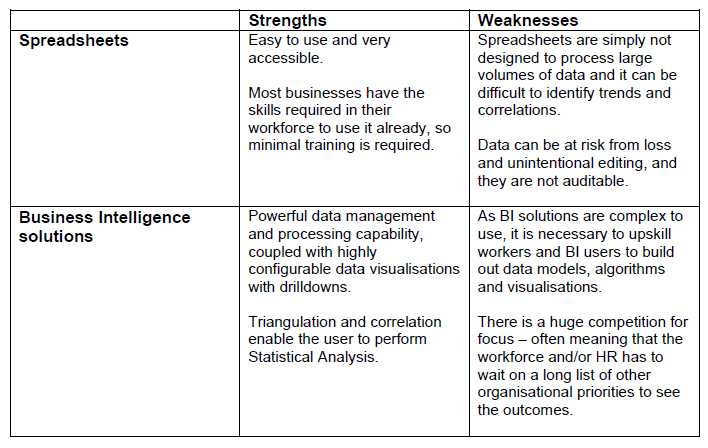ICS Update May 2022
Insights for ICSs from Liaison Group, May 2022
Welcome to our latest ICS Update. This month’s update discusses the collaborative approach promoted by NHSEI in addressing the elective recovery backlog, the true cost of DIY business intelligence, and the gain share model for benefitting CHC.
We hope you find this month’s newsletter useful, and would love to hear your thoughts, feedback or experiences on any these subjects. Please share them with us at info@liaisongroupold.com.

Working together to solve the NHS’s elective recovery challenges

A platform for those within the NHS to post their ideas for how to recover services, redesign care delivery, and address health inequalities.
![]()
…The platform is designed to enable NHS colleagues working within elective recovery to share their ideas and experiences on how the service can best be recovered.
In April, Tim Ferris, Director of Transformation of NHS England and Improvement, opened #SolvingTogether, a platform for those within the NHS to post their ideas for how to recover services, redesign care delivery, and address health inequalities.
The platform is designed to enable NHS colleagues working within elective recovery to share their ideas and experiences on how the service can best be recovered.
The suggestions which have emerged from the activity have been varied – some are traditional recommendations, whilst others focus on communications, technologies, and alternative support functions.
The success of the platform, which remained open until early May, presents the requirement for collaboration with all stakeholders from patients to those in the field, in order to balance budgets with the knowledge of what has been seen to work in practice already.
As we near the official launch of ICSs, and with so many challenges facing the NHS at present, a collaborative approach to transformation is essential for managing the launch of a new way of working, whilst simultaneously looking to manage and overcome these challenges.
– Andrew Armitage, Group CEO, Liaison Group
The True Cost of DIY Business Intelligence for NHS Workforces

Business Intelligence solutions will give an organisation the right tools, but now, let’s look at the in-depth costs for implementing and using BI – both the obvious and the not-so-obvious:
![]()
…There are many tools out there to help you with People Analytics, from spreadsheets to market-leading Business Intelligence solutions
Many of us have successfully taken on DIY projects at home, and been happy with the results – maybe it isn’t quite as good as a professional would have done, but good enough considering you didn’t have to pay anyone else. But you probably wouldn’t consider building a whole house from the ground up… and then when circumstances or requirements change, also build the extension yourself. You’d seek the help of a builder with the right tools, capacity, industry knowledge and assurance. That’s how we feel about People Analytics.
There are many tools out there to help you with People Analytics, from spreadsheets to market-leading Business Intelligence solutions – let’s explore these two options available a little further:

As this presents, to perform true, sustainable People Analytics, you need the right tools for the job, just as you would if building a house – you can’t dig foundations with only a spade!
So, as useful as spreadsheets are, I think that most HR leaders would agree that this is not a sustainable or scalable tool to take People Analytics forward, particularly for the NHS.
Business Intelligence solutions will give an organisation the right tools, but now, let’s look at the in-depth costs for implementing and using BI – both the obvious and the not-so-obvious:
- Software Costs: Whilst MS Excel incurs no additional software costs, BI solutions are usually quite expensive. Where cost is based on the number of licences needed, the bill can run to many thousands of pounds depending on the size of the organisation. In addition, an organisation may require a Data Warehouse to store data – which can also be expensive to implement and maintain.
- Training Costs: Most people are familiar with Excel, although may need some training to utilise VBA and macros. However, the resources and time required to upskill your workforce to make a BI solution work can be significant. Not to mention, the ongoing training to stay up to date with new functions or implementing different types of analysis can also be significant. If or when a person with the required skillset leaves an organisation, the cost of replacing that person also needs to be considered – what will it cost to employ an individual with the necessary valuable skills and any additional training they will need?
- People Costs: Regardless of whether using an Excel or a BI solution, an organisation will need to invest in people to build, maintain and enhance it for a workforce’s ongoing needs. You may build a set of metrics in Excel and think that this has cost you nothing – but someone with a valuable skill set has likely worked on that alone for a significant amount of time. It is also likely that it will quickly fall out of date with future needs, particularly with the evolving landscape of NHS Workforce reporting. BI solutions will require skillsets that are expensive to come by. Assuming you would need a minimum of two Business Intelligence professionals, the true cost of a BI solution will be more than £100k per year, on top of the licensing and training costs.
- Risk: What will be the cost to the organisation if an important set of reports do not work, or you urgently need to react to a situation, such as Covid-19, and get insight? DIY solutions such as spreadsheets and BI solutions often promote single points of failure. If a person is off sick or leaves, the organisation is often found to be overly reliant on them. You could employ two people and double your costs to maintain the solution – but again, if one of these employees leaves or goes on long-term sick leave, you will still have a single point of failure again (albeit hopefully for not quite as long)
Our belief is that NHS Workforce data deserves its own dedicated analytics platform that does not require specific experts or specialists… a Pure Play approach.
What is Pure Play People Analytics?
• The focus is purely on Workforce data, no competing organisational priorities
• Simple for all levels of users, and created for the non-technical user
• Choose from a suite of pre-built Workforce Metrics, Statistical Models and Reporting
• Enables multi-dimensional data discovery
• Powerful segmentation abilities, to get to the most relevant data quickly and cut through the noise
• Aggregate and drill down into individual records for granular detail
• Algorithms driving calcs and people analytics with powerful visualisations and data discovery
• Role-based user access, all within a GDPR-compliant environment
• Cloud-based with lower total cost of ownership
• Faster deployment to get to HR value as quickly as possible
• Minimised risk of implementation failure
Our Approach
The unique advantage of the NHS is that the priorities are very similar in most organisations, and for us, this is comparable to building a whole street of the same houses and then applying unique finishing touches at the end for each consumer.
There are standard NHS metric definitions and report packs available, and as many NHS organisations use a suite of the same Workforce solutions to capture data, this has enabled us to quickly deploy an 80/20 standard “out of the box build” within weeks of IG approval.
We work with NHS organisations to adapt and create content that is specific to their unique requirements, and then work with them to release, review, and reiterate through an adoption period – where we look to take on more data sets and engage with a wide range of user personas throughout the organisation, from Senior Management to Ward Managers.
To introduce People Analytics within an organisation, it is essential that the organisation is sitting on good foundations to make the most of the insights – just like building a house. Please see our whitepaper Building the foundations for People Analytics for more on this topic.
To discuss our People Analytics solution and how it can benefit your organisation, please get in touch at peopleanalytics@liaisongroupold.com
News & Views
A brief round-up of recent articles, guides and blog posts covering news and views on ICSs from healthcare experts…
- NHS England/Improvement Transformation Directorate has released a new draft Standards and Interoperability Strategy, entitled ‘How Standards Will Support Interoperability.’ This aims to ‘improve levels of interoperability across the NHS and provide an overview of the challenges and opportunities, clarifies definitions of key terms, and outlines the main ‘foundations for success’.
- NHS England and NHS Improvement has published guidance to support all ICSs with virtual ward programmes. The guidance, ‘Supporting information for ICS leads: enablers for success – virtual wards including hospital at home’, comes in support of NHSEI asking all ICSs to extend or introduce the virtual ward model. The document aims to support strategic and financial decisions, and the planning and implementation of the model.
- NHS Providers has published its latest guide; Digital Delivery Principles. This Digital Boards guide is the fifth in its series, focusing on how boards can successfully deliver the digital principles that staff and patients need.
- HSJ analysis finds that the majority of ICSs admit purchasing plans are still a work in progress two months before the launch, and many ICSs have not yet appointed procurement heads despite the April deadline.
- NHS hospital staff take 8 million mental health sick days in five years. The data released by hospitals suggested the mental health problems were spread across the service, with the biggest trusts reporting the highest numbers of days lost.

